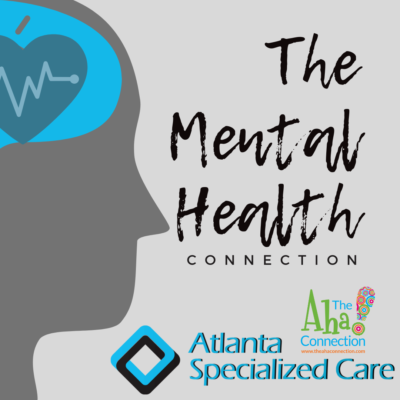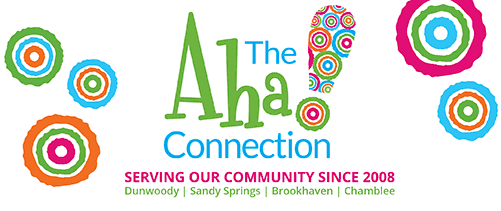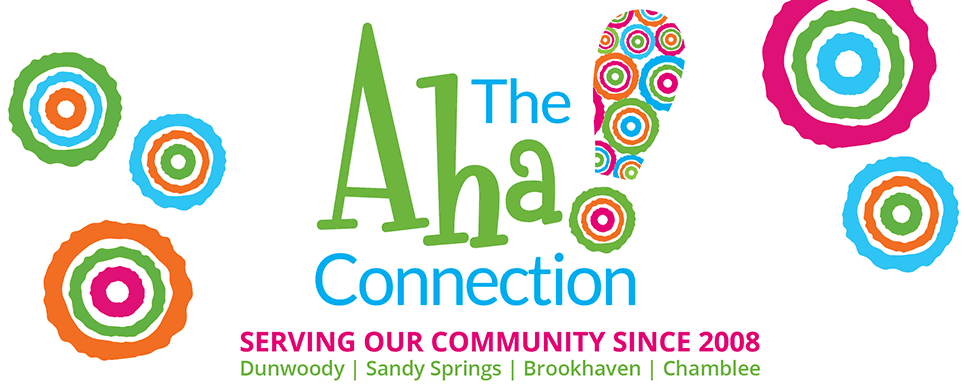 by Tatiana Matthews MS, LPC, CRC of Atlanta Specialized Care for The Aha! Connection
by Tatiana Matthews MS, LPC, CRC of Atlanta Specialized Care for The Aha! Connection
Managing and attending to our mental health should not be an optional activity for any of us. Even so, the development of modern medicine has left mental healthcare behind. Imagine someone who is doubled over with chest pains saying “Yes, I am in terrible pain, but I can’t afford to go to the Emergency Room.” Bystanders would urge them to go get treatment regardless! Unfortunately, when there are financial concerns, a mental health crisis is not treated with the same urgency or attention. The individual in mental distress or pain, and those around them, will often forego seeking much needed help in order to offset financial stress.
The fact of the matter is: financial limitations and insurance caps promote mental health neglect. Inpatient and outpatient psychotherapy, medication and psychological evaluation is often limited to those with financial advantage. Even those lucky enough to have some insurance support for mental health care are frequently told by providers, “We don’t accept insurance because of our challenges with reimbursements or negotiating fair rates.” “Sorry, we are no longer accepting new patients because we are at capacity” and no additional referrals for care. What should you do, then, if you or your loved one needs mental health support and finances are a concern?
First, if you are ever in doubt as to your or someone else’s safety towards self or others, always report to the emergency room. Payment plans based on financial ability can assist those who need emergency stabilization. If safety is not a concern, a mental health situation can usually be managed on an outpatient basis. In these instances, seek out community mental health resources, such as county or non-profit resources that offer sliding scale rates. Consider seeing student interns who are training as mental healthcare providers at outpatient locations. Many mental health practices, (including Atlanta Specialized Care in Alpharetta and Dunwoody) offer reduced or free services to give graduate students completing their secondary education opportunities to train.
Even non-profit in-patient facilities can often offer reduced rates or scholarships based on need. Typically, if you call an in-patient facility, they will have a community liaison who can assist you in identifying resources if they are unable to serve you. Seek out free local support groups, such as the National Alliance on Mental Illness or 12-step programs to attend and gather additional resources. If a psychological evaluation is needed, a child may be able to complete comprehensive assessment through their school. Contact your local school counselor to express your concerns and to inquire about resources the school may be able to provide. Adults and children may also find reduced-rate testing resources through many local universities, as part of psychology doctoral training programs. Psychotropic medications are also in reach. Many pharmacies, coupon programs like Good Rx and pharmaceutical scholarship programs offer dramatically reduced medication costs or even free medications.
Bottom line, mental health should not be neglected because of financial constraints. There are resources in the community! You may have to do some research, but with vigilance, support can be found. Mental health, just like physical health, matters!
 Since 1998, Tatiana Matthews has been sharing hope, humor, and professionalism with her clients. She is a Licensed Professional Counselor (LPC) and a Certified Rehabilitation Counselor (CRC) in Georgia and North Carolina. She is the clinical director of Atlanta Specialized Care.
Since 1998, Tatiana Matthews has been sharing hope, humor, and professionalism with her clients. She is a Licensed Professional Counselor (LPC) and a Certified Rehabilitation Counselor (CRC) in Georgia and North Carolina. She is the clinical director of Atlanta Specialized Care.
Mrs. Matthews obtained her master of science from East Carolina University, where she majored in clinical rehabilitation counseling with a specialty in addiction and mental health. While acting as a consult liaison in the main medical hospital, she completed her clinical internship in the alcohol and addiction program and the psychiatric unit at Duke University Medical Hospital.
Following her internship, Mrs. Matthews practiced privately with East Coast Counseling in Greenville, North Carolina. In addition, she served as research director for a “Brief Intervention” study conducted through the East Carolina Injury Prevention Program at Pitt Memorial Hospital in Greenville.
In 2000, Mrs. Matthews moved to north Georgia and worked on a contractual basis for Ridgeview Institute’s mobile assessment team in Smyrna. She was one of the founding partners of North View Counseling & Recovery, Inc., where she practiced for almost 10 years. After retiring from North View in August 2010, Mrs. Matthews began practicing independently in Alpharetta.
Mrs. Matthews addresses the mind, body, spirituality, family systems, vocation, and hobbies. When requested by a client, she can integrate a Christian perspective into the therapy process. She is client-centered and develops a series of interventions that are challenging without being shaming.
Mrs. Matthews provides individual, family, and group therapy to adults and adolescents. She has extensive experience in the areas of addictions, co-dependency, trauma, mood regulation, ADHD, autism spectrum disorders, and learning disabilities.
Mrs. Matthews has specialized training in eye movement desensitization and reprocessing (EMDR), as well as dialectical behavioral therapy (DBT). EMDR is a therapeutic technique used to address trauma, while DBT teaches emotional regulation.
Mrs. Matthews is also the author of Fred the Fox Shouts “NO!”, an adult’s guide to speaking to children about sexual abuse prevention. Fred the Fox helps parents and caregivers introduce the concepts of “private parts” and safety with people we know. With the help of illustrations by Allison Fears, Fred the Fox helps children learn to recognize and avoid sexual abuse and helps protect them by teaching them what to do.
Fred the Fox Shouts “NO!” is available for purchase at Amazon.com.






